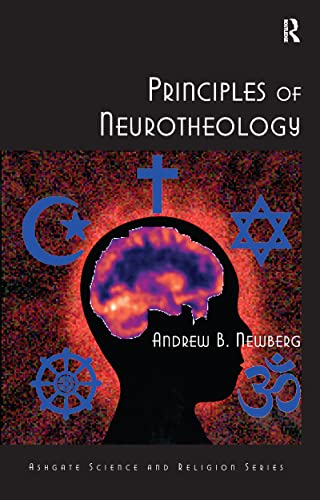For the Fame of God’s Name: Essays in Honor of John Piper
Written by Sam Storms and Justin Taylor, eds. Reviewed By Stephen WitmerThere is a seeming paradox in the life and writing of John Piper. On the one hand, few Christian leaders in our generation have focused more consistently on one central truth as the core of virtually everything they say. What is the heartbeat of Piper's theology? Anyone even vaguely familiar with his work will answer, “The glory of God” or “God is most glorified in us when we are most satisfied in him.” For how many contemporary Christian teachers would the answer to that question be so immediately obvious? I once heard Piper tell 40,000 college students that to make their lives count they didn't need to know a lot of things; they just needed to know a few things and be gripped by them. There's hardly a better description of Piper himself or of the reason for his effectiveness as a pastor, author, and leader. The seeming paradox is that despite Piper's persistent focus on a few basic truths the breadth of his thought and writing is remarkable, ranging over numerous genres (e.g., poetry, sermons, devotional literature, essays, biographies) and many topics. This is only a seeming paradox because the few things Piper has focused on are foundational biblical truths. Consequently, he has been able to unfold these core truths in many ways over many years, viewing the Bible and life in light of them.
For the Fame of God's Name reflects this extraordinary combination of depth and breadth in its honoree. It is a long book (542 pages) with a large number of contributors (27) and a wide variety of topics. And yet, unlike many other similar volumes, it maintains a unified feel throughout. Its coherence is a function of the fact that each of the essays interacts with one of several key features of Piper's life and thought. The book has seven sections, containing essays on (1) John Piper himself; (2) Christian hedonism; (3) the sovereignty of God; (4) the gospel, the cross, and the resurrection of Christ; (5) the supremacy of God in all things; (6) preaching and pastoral ministry; and (7) two ministries founded by Piper: Desiring God and Bethlehem College and Seminary. Most of the essays are pastoral theology aimed at students and pastors, though a few are more academic in tone and content (e.g., the chapters by G. K. Beale and Mark Talbot). In this brief review, I will limit myself to a few comments on the book as a whole and several essays in particular.
The core of the book (Parts 2-6) consists of serious theological and pastoral writing. These essays are of high quality. Wayne Grudem's chapter (“Pleasing God by Our Obedience: A Neglected New Testament Teaching”) is especially valuable for its emphasis on the importance of Christian obedience, a teaching that Grudem notes is often deemphasized by evangelicals out of a desire not to be seen as undermining justification by faith alone. Grudem's important essay demonstrates that the call to please God through obedience resounds throughout the NT. The essays in Parts 2-6 are framed by essays on Piper himself and ministries he has founded (Parts 1 and 7). Reading these chapters reminded me once again what a gift to the church a full-scale biography of John Piper would be. The one chapter most obviously missing is a chapter on Bethlehem Baptist Church. Granted that the book is already lengthy, this feels like a significant omission given the centrality of his church to Piper's life and ministry. In addition, while I'm reluctant to critique a book based on things it omits, the lack of any female contributors to For the Fame of God's Name deprives readers of a valuable perspective on Piper's work.
Most of the contributors who interact with Piper's thought quite understandably cite his books (and a few of his blog posts are mentioned). But two chapters are particularly creative and stimulating in their use of Piper's sermons. In “The Glory and Supremacy of Jesus Christ in Ethnic Distinctions and Over Ethnic Identities,” Thabiti Anyabwile engages extensively with several sermons on the theme of race. In “'Abortion is about God': Piper's Passionate, Prophetic, Pro-Life Preaching,” Justin Taylor summarizes each of the annual abortion sermons Piper has preached since 1989 and draws lessons for pastors. Taylor's chronological approach is very fruitful, displaying the consistency of Piper's emphases over time as well as the variety of his exegetical and homiletical approaches to this topic. The use of Piper's sermons in these two chapters demonstrates a rich resource waiting to be tapped.
Of all the contributors, Mark Talbot engages most vigorously and critically with Piper's thought. Talbot takes issue with Piper's descriptive claim that (in Talbot's words) “the pursuit of personal pleasure plays a necessary role in all human motivation” (p. 72) and with Piper's prescriptive claim that (again, in Talbot's words) that “human beings should be motivated by nothing other than the pursuit of everlasting pleasure” (p. 72). Using biblical and historical examples, Talbot argues that there are instances of “profound suffering” that may cause people, even Christians, to lose all hope, at least temporarily. In these cases, Christian hedonism can offer no motivation, since those who have lost hope of ever again feeling pleasure are not motivated by the call to pursue pleasure (p. 96). Talbot suggests that those who are suffering profoundly in this way must instead seek motivation from truth—in particular, the truth of who God is.
Talbot's critique of Christian hedonism is carefully written, biblically rigorous, and thought-provoking, but (at least to me) unpersuasive. Unfortunately, Talbot does not engage with (or even mention) Piper's book When I Don't Desire God, which is highly relevant to the theme of Talbot's essay. In particular, chapter 12 of that book (“When the Darkness Does Not Lift: Doing What We Can While We Wait for God—and Joy”) addresses the situations of depression and hopelessness that Talbot highlights, demonstrating that Christian hedonism has the resources to address such situations. In this limited space, I would query two points in Talbot's essay. First, is his characterization (quoted above) of Christian hedonism as saying that “human beings should be motivated by nothing other than the pursuit of everlasting pleasure” a fair one? That way of saying it seems to minimize the glory of God as a motivation and might also be misconstrued as a quest for a psychological experience of happiness without reference to God (see When I Don't Desire God, p. 31). Second, does Talbot adequately account for the fact that the Bible commands joy in God at all times (e.g., 1 Thess 5:16)? It seems to me that the implication of joy in God being a biblical command is that such joy can be a motivating factor even in cases where we don't believe we'll ever experience it again. Even if we don't have it now and don't feel we ever will, we are to move forward toward joy in God as an act of obedience.
In summary, For the Fame of God's Name deserves to be read and studied carefully. It is a fitting tribute to a man whom God has used powerfully in this generation.
Stephen Witmer
Stephen Witmer is the pastor of Pepperell Christian Fellowship in Pepperell, Massachusetts, is an editorial board member of Themelios, and teaches New Testament at Gordon-Conwell Theological Seminary.
Other Articles in this Issue
Evaluating a new English translation of the Bible can be extremely difficult...
In the November 2009 edition of Themelios, Dane C...
Jonathan Edwards (1703-1758) is remembered today as a saint, scholar, preacher, pastor, metaphysician, revival leader, theologian, Calvinist—the list goes on...
Almost two decades ago I wrote an essay titled " When Is Spirituality Spiritual? Reflections on Some Problems of Definition ...
He was the youngest son of elderly parents. His childhood was secluded and unhappy, which might in some measure account for his lifelong melancholy...







